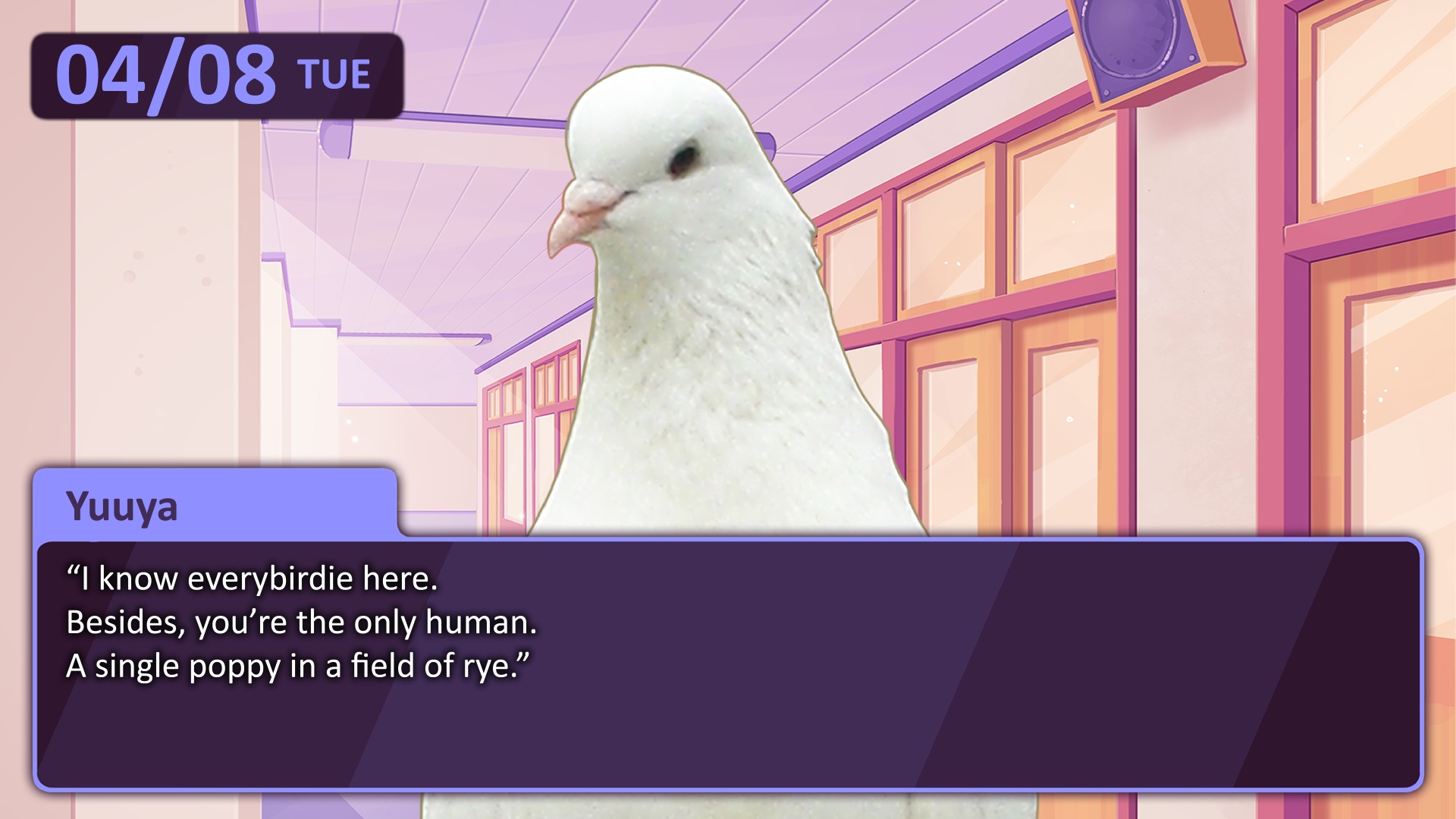This article is part of a collaboration with iQ by Intel.
You wake up, groggy, caught in the gravity of a mystical cloud. You have no clue where—or even who you are. You’ve lost all memory prior to this moment, from people’s names to entire relationships. You don’t know who to trust, but a fairy boy (who apparently only you can see) keeps following you around, and your flamboyantly-dressed and gorgeous boyfriend (if he even is your boyfriend at all) is starting to get suspicious. There might be a multi-dimensional conspiracy against you. Depending on your choices, you might die, or wind up locked in a cage and treated like an animal. Or, when all is said and done, you might even end up happy.
This is the opening plot of Amnesia: Memories, a visual novel, or more specifically, a Japanese dating sim that has found a small but passionate audience overseas in the U.S.
This genre of dating sims, known as “otome games” (which roughly translates to “girl games”), first began in 1994 as a female-targeted version of an already popular brand of manga-inspired male dating sims named “Bish?jo (or “young, beautiful girl”) games.” While many were doubtful about the market for female-targeted videogames of any kind, the genre became hugely popular among young Japanese women, inspiring an entire subculture of dedicated players.
Since then, the genre has garnered surprising success not only in Japan but worldwide as well, attracting the attention of over 22 million women last year. That’s a large number, especially considering just how obscure and outlandish the actual content of otome games tends to be.

Otome games follow a strict formula. You play a heterosexual woman being courted by a host of attractive, young men. There are usually a few archetypes to choose from: the bad boy, the smart one, the cute shota (young boy), the reserved and mysterious type.
But, unlike other narrative games and visual novels, players don’t just pick one path. Otome games are specifically designed for multiple playthroughs, encouraging the player to experience every potential lover’s storyline before finally revealing the “true” ending that ties them all together.
“The games aren’t actually about ending up with your one true love,” explains Amanda Cosmos, game developer and founder of blog Otome.sexy. “It’s actually more like this quantum perception of a storyline. You’re supposed to explore.”
This unique brand of videogame storytelling is part of the reason why otome plots revolve around such fun and fantastical events. Commonly, otome stories employ various mythological creatures, supernatural powers, and sometimes even sci-fi devices in order to explain the multiple realities the player experiences. The tone can vary from the melodramatic to the comedic.
The recent release of Amnesia: Memories on Playstation Vita (and PC soon after) is just one example of how the usually niche Japanese genre is finding legitimacy worldwide. Hatoful Boyfriend, one of the more eccentric titles which casts the player as the sole human in a pigeon dating sim, also saw a successful international release on both Steam and the Playstation 4 this summer.
Last year, otome company Voltage Inc. opened up a North American branch with the goal of producing otome-inspired dating sims specifically targeted at a Western audience. After extensive market research, Voltage found that western audiences preferred stronger and more independent female characters, as opposed to the typical damsel-in-distress scenarios of Japanese otome games. The more feminine male archetypes like the shota were also swapped out for overtly masculine characters.

Largely, however, Voltage found that the love for bombastic romances was pretty cross-cultural. As Voltage CEO Yuki Tsutsami told The Daily Dot, “We feel this is an ubiquitous genre. It is a genre that appeals to all women not just in Japan but all across the world, and we feel that creating global applications will fulfill the needs of women worldwide.
Though the international market for these female-targeted dating sims has yet to reach the same fervor seen in Japan, many believe this is a simple problem of accessibility. In the past, localized English versions of otome games either took too long to come out or suffered from poor translation and alienating cultural references.
Nowadays, with the advent of North American dating sim companies like Voltage and Idea Factory, the west is finally being invited to take part in the fun—and perhaps even develop its own unique identity. Following a successful Kickstarter where it made over double its original funding goal, Seduce me Otome released on Steam to overwhelmingly positive feedback, demonstrating how otome-inspired titles with Americanized subject matter and style are not only possible but welcome.
Cosmos even helped organize the International Love Ultimatum Jam, a month-long event that invited budding creators to explore the varied possibilities in Otome-inspired dating sims. Among the sixteen games submitted were such colorful titles as Space Cat Boyfriend and Circus of Soaring Dreams.
Despite its peculiarities, otome is proving to be an oddly universal format. Perhaps it goes to show that everyone, regardless of cultural background and gender, could do with a little more play in their romance.
